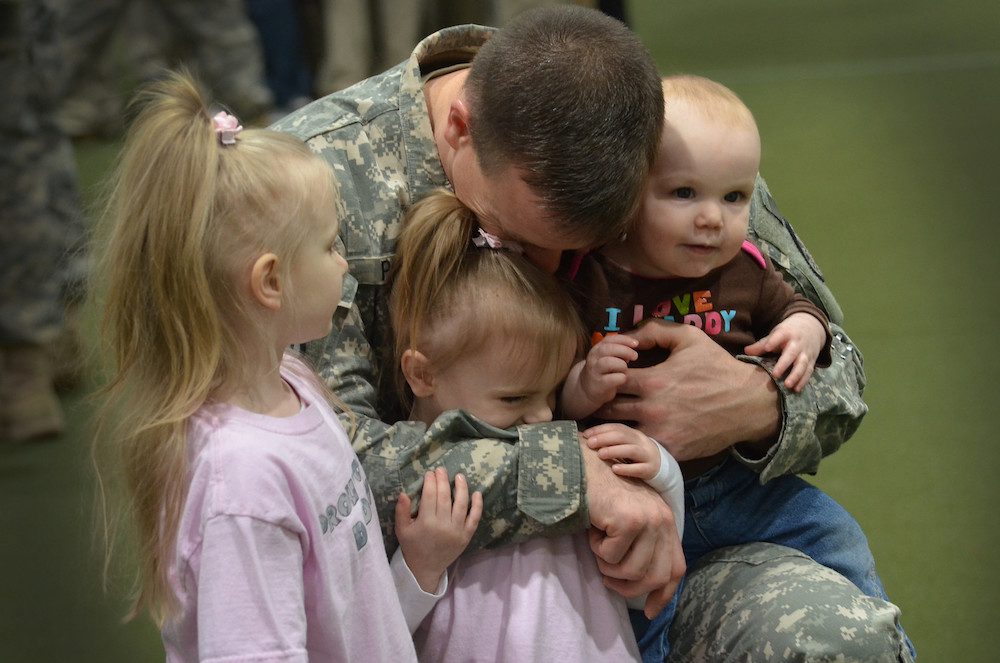The Afghan Deal May Be Doomed, But Bring the Troops Home Anyway

The ink is barely dry on a new U.S.-Taliban peace deal but there is renewed hope that the forever war in Afghanistan might finally end.
However, the likelihood that the agreement will prove sustainable and resolve the internal problems between various Afghan factions remains exceedingly low. Some have argued that this means the United States should continue to maintain a troop presence in Afghanistan until a better deal emerges. They contend that American forces should prop up and defend the current Afghan government until it is certain the Taliban will not retake the country and al-Qaeda and ISIS are vanquished for good. 
This is wrongheaded. The reason the Afghan war has lasted as long as it has is because the United States has already spent more than a decade following that advice. Instead, American policymakers should accept that every war must end. The historical record illustrates the folly of expecting a durable peace settlement following a U.S. withdrawal. The core lesson of winding down the war in Afghanistan should be this: limping to the finish after so much loss in blood and treasure is the most likely outcome not just of this war, but similar wars of choice in the future. Policymakers should incorporate this likelihood into their calculations at the outset, rather than wasting resources on counterproductive military interventions.
The History of Durable Peace Settlements
Since 1898, the United States has increasingly engaged in military interventions abroad, as opposed to other forms of coercion or persuasion. These interventions have often been undertaken in war-prone territories with fractured polities and instability, which are cited to justify American involvement in the first place. While these interventions are often conceived of as short-term military missions, intended to resolve a specific instability, they almost invariably escalate into the kind of never-ending wars and deployments we continue to experience in Afghanistan, Iraq, and Syria.
In such divided societies, the argument that the U.S. can end these interventions successfully rests on the assumption that durable peace settlements can be negotiated—that rival combatants care more about peace than about killing each other. Unfortunately, negotiated settlements between combatants rarely produce the stability envisioned at their signing. Instead, it is outright military victory, and especially rebel victory, that leads to enduring peace settlements.
These lessons were learned during the Vietnam War, during which a durable peace between the North and South Vietnamese governments was set as a condition for the U.S. exiting. Successive presidential administrations chased an elusive deal by increasing their area bombing of North Vietnamese territory in order to coerce the North into a peace settlement that could lead to an American departure and allow South Vietnam to stand on its own. Eventually, the Nixon administration switched its targets (in the famous LINEBACKER operations) from infrastructure (and civilians) to North Vietnamese armed forces, which brought the North to the settlement table. But the Nixon administration was also forced to accept that a fleeting peace deal was better than the continued expenditure of American lives and resources.
Rather than chasing a peace agreement that will never emerge, the real lesson is to either settle for what in the 19th century used to be called “punitive expeditions” (go in blazing, hurt your target, then leave) or avoid intervening with armed forces altogether, thereby avoiding Vietnam-like quagmires. (That latter argument was the central tenet of Secretary of Defense Caspar Weinberger’s policy in 1984 and was later reprised by Chairman of the Joint Chiefs of Staff Colin Powell in 1992.)
In Afghanistan, the Best Deal is a Done Deal
As the current peace process between the U.S. and the Taliban sets the stage for the more complicated peace talks between the government and the Taliban, the comparisons between the Vietnam exit strategy and the current strategy in Afghanistan have begun. Unfortunately, the conditions that are usually associated with durable peace settlements will not be present in these talks. There is a severe lack of national unity in Afghanistan, even among the non-Taliban controlled areas where contested elections have created fissures. Weak government reach means it will be difficult to enforce the peace in various parts of the country.
Rampant corruption in Kabul also means there are many who will try to spoil the peace agreement and stymie aid and resources. Even in the best of circumstances, it is challenging to reach credible and sustainable peace deals. In Afghanistan, the military quagmire, lack of unity, and weak governance mean the conditions for a successful agreement are nonexistent.
Given these severe challenges, policymakers will be tempted to maintain a strategy of engagement to ensure that any peace deal is backed by U.S. military force. There will be calls to maintain an American troop presence as a deterrent: in other words, to kick the can down the road yet again. True, there will be pain, suffering, and a great deal lost once the U.S. leaves. But no one except Russia, China, corrupt Afghans, and conservative elements in Pakistan benefit from the U.S. staying on a forlorn hope.
The Lessons of Afghanistan
As in Vietnam, the key takeaway from Afghanistan is that when military victory can’t be achieved, a negotiated settlement is unlikely to endure even, or especially, after long military missions. Instead, policymakers need to think about the likelihood of a durable peace settlement before intervention rather than re-learning these lessons again and again. Policymakers—especially in relatively powerful states such as the United States—often opt in to interventions under the assumption that achieving limited political objectives will be quick and easy given an overwhelming deployment of military force.
Unfortunately, once the military commits to an intervention, it invariably finds that the on-the-ground realities are often more complicated and demanding than initially envisioned; this leads to the mission creep of expanding goals. As political scientist Robert Gilpin put it four decades ago, policymakers rarely get the type of intervention “they want or expect; they fail to recognize the pent-up forces they are unleashing or the larger historical significance of the decisions they are taking.”
Some may argue that a faulty and non-durable peace agreement does not honor the sacrifices of the troops who gave their lives in the war. In some sense, this is true. But neither would the continuing sacrifices in blood and treasure not just of intervening forces and the societies that support them but the peoples our government committed to aid in the first place.
Research spanning over 200 years of asymmetric conflict outcomes makes it clear that the days in which it was possible to succeed in a military intervention of the kind the U.S. increasingly undertakes have long since passed. In the future, it must be recognized that intervention is unlikely to produce the desired final outcome. As Richard Falk, an experienced policy practitioner, put it in The Nation in 1993, “non-intervention is intolerable, but [successful military] intervention is impossible.”
Before embarking on similar interventions in the future, policymakers must reconcile these lessons and understand that the desire to be more engaged around the world militarily does not always produce the best outcomes for American interests. Resisting the temptation to intervene with armed force in the first place, practicing restraint and deploying other powerful tools available, are more likely to produce a result consistent with long-term U.S. interests in global peace and prosperity.
Benjamin Denison is a postdoctoral fellow with the Center for Strategic Studies at Tufts University’s Fletcher School.
Monica Duffy Toft is professor of International Politics and director of the Center for Strategic Studies at Tufts University Fletcher School. She is also a non-resident fellow at the Quincy Institute, a global scholar at the Peace Research Institute Oslo, and a member of the Council on Foreign Relations.
Comments